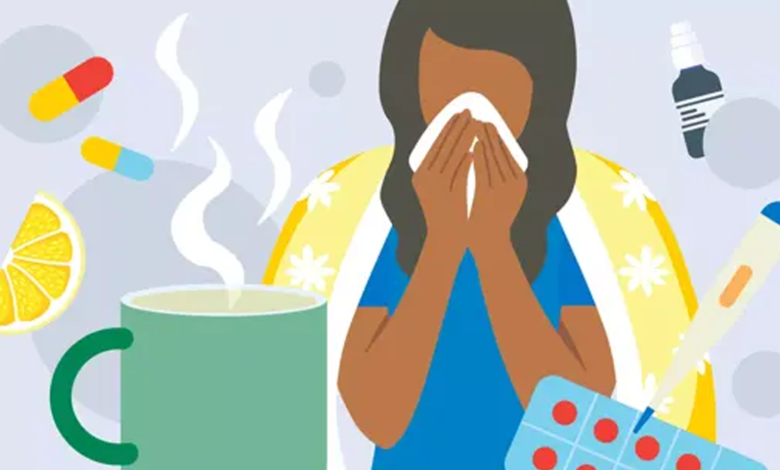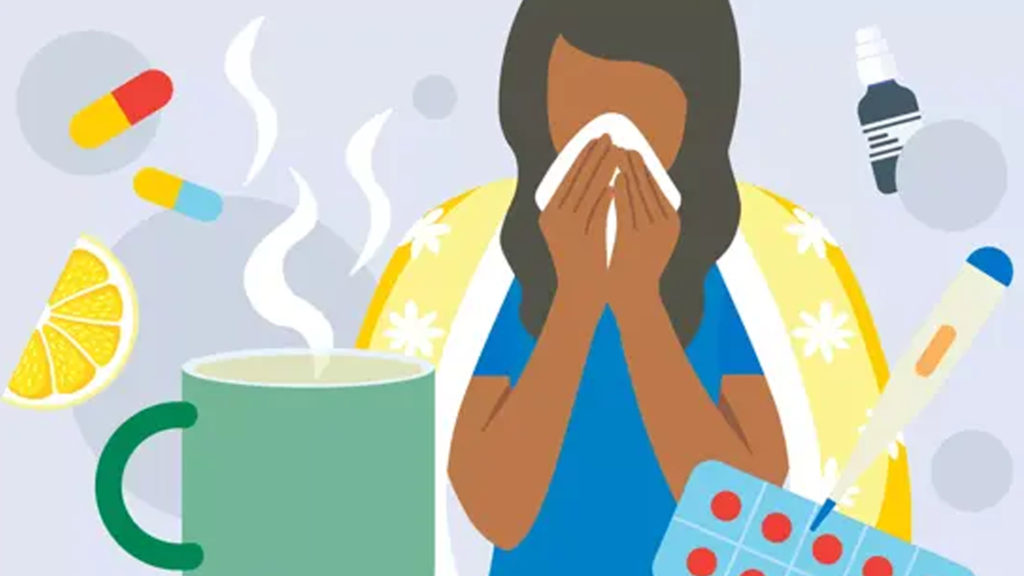
How To Cure Sore Throat In Summer From Cold
How to Cure Sore Throat in Summer from Cold
How To Cure Sore Throat In Summer From Cold A summer cold is simply a common cold that you catch during the warmer months. While many people associate colds with winter, it’s entirely possible to catch a cold in the summer. Some might mistake the symptoms of a summer cold for allergies, but the reality is that the rhinovirus responsible for common colds can spread and cause infections regardless of the season. Just like in winter, a summer cold can lead to a sore throat, which can be particularly uncomfortable in the heat.

If you catch a cold in the summer, the symptoms, including a sore throat, will be much the same as in the winter. Even though it’s hot outside, the strategies for relieving a sore throat remain consistent. Here are some effective ways to cure a sore throat caused by a summer cold:
- Warm Saltwater Gargle: Gargling with warm salt water helps reduce throat inflammation and provides soothing relief from irritation.
- Stay Hydrated: Drinking plenty of fluids, especially warm teas and broths, can keep your throat moist and ease discomfort.
- Use a Humidifier: Adding moisture to the air with a humidifier can prevent your throat from becoming too dry, which is helpful when battling a summer cold.
By following these steps, you can effectively treat a sore throat caused by a summer cold and feel better quickly, despite the heat outside.
How can you tell it’s not allergies?
It can sometimes be challenging to distinguish between a common cold and summer allergies. However, if you’re aware of the key differences between them, it becomes much easier to tell one from the other.
Allergies Last Longer
Did your symptoms clear up after one to two weeks? If they did, it’s likely you had a summer cold that has now passed. However, if your symptoms continue for more than two weeks without improvement, you’re probably dealing with allergies instead.
Symptoms Will Fluctuate
If your symptoms vary in severity—starting mild, worsening, and then either easing up or disappearing entirely—it’s likely you have a cold. Allergies, on the other hand, tend to be consistent and persistent without significant changes in severity.
Onset of Symptoms is Different
With a cold, symptoms typically develop one at a time over several days. In contrast, allergies often present all symptoms simultaneously, providing a more immediate and comprehensive reaction.
Symptoms Change When You Travel
If your symptoms improve or worsen when you move from one region to another, it’s more likely you have allergies. This is especially true if you travel between areas with different types of pollinating plants and allergens.
Nasal Discharge Will Be Different
For colds, the mucus you blow from your nose is usually thick and greenish or yellowish. In contrast, mucus from allergies is typically translucent and thinner in consistency.
What Are the Best Remedies?
Many classic remedies for winter colds are also effective for summer colds. To treat a summer cold:
- Rest Up: Ensure you get plenty of rest and sleep. Avoid excessive activity and stress, which can weaken your immune system. Even though summer offers many outdoor activities, you may need to stay indoors and rest.
- Stay Nourished and Hydrated: Drink plenty of fluids, especially water. Avoid dehydrating beverages like alcohol, coffee, and energy drinks. Hot beverages, such as tea, can be soothing and helpful for symptoms. Maintain a strong intake of vitamins and minerals, particularly immune-boosting nutrients like iron.
How Long Will It Last?
A summer cold typically lasts as long as a cold during any other season. On average, a cold will persist for about 10 days, with significant improvement often occurring around day seven. Children generally recover from colds more quickly, often within a week, while adults might experience symptoms for up to two weeks, depending on age, health, genetics, and other factors.
Taking good care of yourself and using effective cold remedies can help speed up your recovery. If your symptoms last longer than two weeks, consult your doctor.
How Can You Prevent Summer Colds?
While it’s impossible to completely prevent catching a cold, you can reduce your risk with the following practices:
- Take Care of Your Immune System: Support your immune system by eating nutritious foods, managing stress, and considering immune-boosting supplements.
- Get Plenty of Sleep: Adequate sleep is essential for a well-functioning immune system.
- Wash Your Hands: Regular hand washing, especially in public restrooms and other high-touch areas, can help prevent the spread of cold viruses.
- Avoid Those Who Have a Cold: Steer clear of individuals with colds, and wash your hands thoroughly if you come into contact with them.
Is It Possible to Sweat Out a Cold?
While sweating might offer temporary relief from some cold symptoms, it won’t shorten the duration of your cold. Colds typically last 7 to 10 days.
Does Sweat Help Treat Congestion?
Sweating may help temporarily relieve symptoms like nasal congestion, but it does not cure the cold itself. Various methods to induce sweating, such as hot showers or exercise, can provide temporary comfort but won’t significantly affect the overall duration of your illness.
Does Hot Steam Help Treat Colds?
Exposure to hot steam, such as from a hot shower or steam room, can help alleviate some symptoms of a cold by loosening mucus and soothing your throat. However, it does not cure the cold but can offer temporary relief.
Do Saunas Treat Colds?
There is limited evidence to support the idea that saunas can treat colds. While saunas can induce sweating, which might temporarily ease symptoms, they do not shorten the duration of a cold. If using a sauna, rehydrate with cool water and cool down gradually to avoid putting stress on your body.
Is It Safe to Exercise with a Cold?
Exercising with a common cold is generally safe if you feel up to it. Exercise can temporarily relieve symptoms like nasal congestion. However, if you have severe symptoms, such as a fever, chest congestion, or a persistent cough, it’s best to rest. If you choose to exercise, consider reducing the intensity and duration of your workout.
How to Recover from a Cold
To help recover from a cold, follow these guidelines:
- Rest Up: Ensure you get between 8 and 10 hours of sleep each night to support your body’s fight against the illness.
- Stay Hydrated: Drink plenty of fluids to help your body combat the infection and loosen mucus. Warm liquids like tea or broth can be soothing. Avoid dehydrating beverages such as caffeine, alcohol, and salty foods.
- Use a Humidifier: Adding moisture to the air can alleviate symptoms by keeping your nasal passages moist and reducing congestion.
Takeaway
While you might hear that “sweating out a cold” is beneficial, there’s little evidence to support this claim. The most effective ways to recover from a cold are getting plenty of rest, staying hydrated, and using over-the-counter medications to relieve symptoms. A cold typically resolves itself within 7 to 10 days with proper care.






